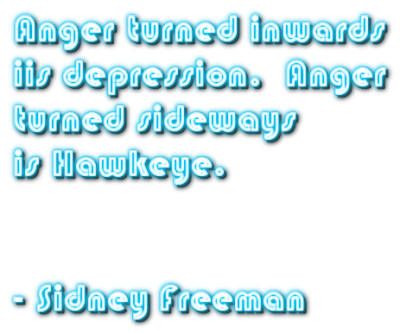Obviously, the day he was found was in some ways the worst of my life in some ways. Anniversary number 1 of his passing wasn't easy either. It has generally been easier every year. However, for some reason, it was harder this year. Maybe it was the stress of work deadlines and the pandemic and all that involves? In any case, it got me to thinking about his life, my life and the dysfunction we grew up in. Someone he know from college had given me a gift, albeit a painful one, her memories of him. I didn't see him much when he went away to college. So, she give me a bit of picture of his life away at school. She related that even back then she knew he was hurting more than the average kid who moves away for the first time to college. Anyway, talking about it with her and others reminded me of something I'd figured out along the way.
When we have unprocessed hurt, our tolerance or ability to take more hurt is lessened. Think of it like this. We are a 16 ounce glass. Life's daily struggles can fill our cup part of the way. If we have a lot of unprocessed hurt, our cup may be well on its way to be full. So, add life's daily struggles and it can get close to the top. Now, add a particularly rough period and well you know the rest: the cup cannot take on any more. For some people, it results in alcoholism. For others, it can result in gambling, etc. But, for the really hurt ones, the cup seems to find a way on the grounded shattered in pieces with the contents lost forever.
We may make it and recover from that rough period. I survived a his passing, losing my house, losing my job, bankruptcy and my dad's health failing. But, like him I had been scarred in the early years and the period immediately before, during and after his passing had it's own troubles, though I was able to start processing a lot that I hadn't previously. Anyway, you survive the hurt/injury, but like a broken elbow that heels, it isn't quite the same. The limb has healed as much as it can and you have 'full' use of it, but it it's not the same. There may be weakness or scarring. You may be aware on a fairly regular basis of the injury, but you don't necessarily focus on it. However, you bang that elbow and the pain from the original injury and/or scarring will be front and center again.
I think hurt, especially that which isn't fully processed or 'healed' is like that.
- You know it's there, but it is just there and not really interfering with your daily life.
- You run into a situation or circumstance that reminds you or brings it front and center, and you feel the pain all over again--just not necessarily to the original degree.
- You retreat or find something to take your mind off it until it subsides.
- You get back to your everyday routine again and it recedes until the background.
However, sometimes just like the cup that has never been fully emptied, there is always a bit of a risk of it overflowing. You may never get that cup fully empty and that may be your cross to bear, however, it is never too late to continue to process hurt where it exists. It is never too late to look for opportunities to heal. The big key is a willingness to work through it and building a good support system. As we've discovered more and more during this pandemic, people are social creatures and we thrive on good support systems.
I guess my takeaways are:
- We can't stop 'traumas' from happening to others, but we can be there for others after and provide them a support system.
- Sometimes we have to face our own 'traumas' head on.
- In our recovery from traumas, it can be hard to get rid of the hurt that sometimes hides away. However, it is best to address the hurt rather than just 'take a couple aspirin and sleep it off'.
If you know my blog you know I always end with a song and this song is screaming out to be included. I have always liked her music because she faces pain and hurt head on in her music and lets face it, she's a very talented songwriter and singer. She was hurt in a profound way by her parent's divorce at an early age and she found a way to turn it around into a positive (see Family Portrait). A funny story: one time we (my girlfriend at time and I) were relating to a guy serving us about her concert and he intimated to me later how it was a brave thing to take her to a 'chick concert'. I had to laugh as it was actually me that pushed us going to the concert. I could have corrected him but why bother. I don't have to answer for my taste. On a related note, I'm proud of my late brother for being himself.






